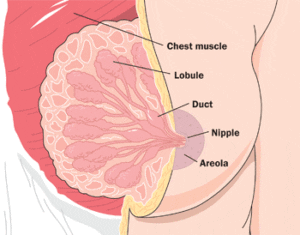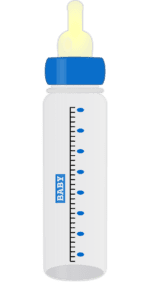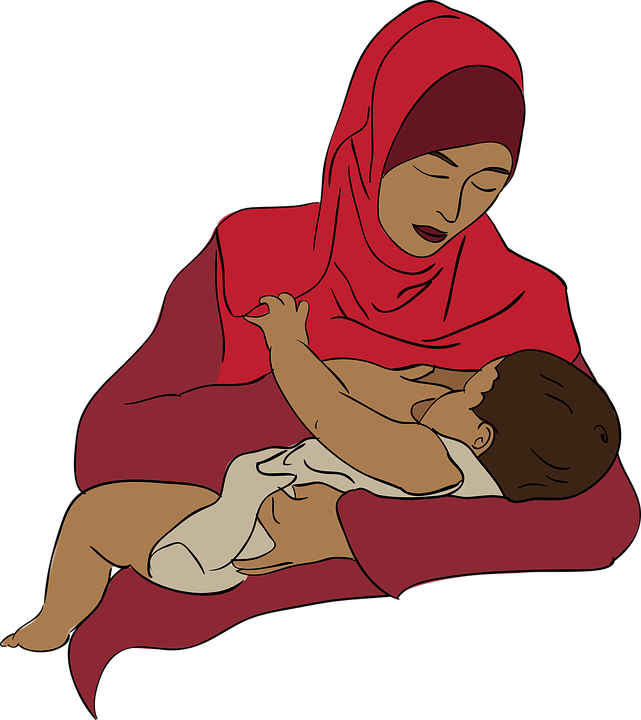 Mastitis describes inflammation of the breast due to a clogged duct or infection. It is more common in mothers who are stressed, go long intervals between feedings, or have cracked or bleeding nipples. If you think you have mastitis, please contact your healthcare provider to rule out infection.
Mastitis describes inflammation of the breast due to a clogged duct or infection. It is more common in mothers who are stressed, go long intervals between feedings, or have cracked or bleeding nipples. If you think you have mastitis, please contact your healthcare provider to rule out infection.
Signs & Symptoms of Mastitis
- Fever
- Flu symptoms (e.g., feeling tired, achiness, chills)
- Breast pain or tenderness
- Hot breasts
- Breast redness
- Swollen or firm breasts
- Swollen lymph nodes
- Decreased milk output
Treatment
Because mastitis tends to cause flu-like symptoms, mothers who have mastitis should get plenty of rest. Alternate using cold compresses to relieve pain and warm compresses to increase circulation. Massage the area to help loosen any clogged ducts.
Breastfeeding more frequently will help to relieve any clogged ducts, as well. The more your breast milk flows, the less likely it is that mastitis will develop. To better empty your ducts, try varying your baby’s position at the breast. If your baby is not emptying your breast, try pumping to get the milk out.
For fever or pain, you can safely take acetaminophen (Tylenol) while breastfeeding. If you have a fever, drink plenty of fluids and boost your immunity.
Mastitis Prevention
- Breastfeed or pump regularly and avoid engorgement.
- Avoid compressing your breasts while sleeping. You can purchase special pillows or use blankets to help support you while you sleep. Don’t sleep on your stomach.
- Rest. Stay healthy and avoid infection by eating well and getting plenty of sleep.
- Sleep without a bra. Choose light fabrics that don’t compress your breasts.
- Boost your immunity.
Infected Breasts
If your breasts are infected, you must visit your healthcare provider so that they can prescribe you antibiotics. If breast milk is staying in your ducts and not flowing correctly, bacteria can quickly grow and cause your breast to become infected.
Don’t wait. The earlier you catch an infection, the sooner you can get antibiotics and get your baby back to breastfeeding. Mothers who wait too long are more likely to wean their babies’, have more severe infections, or have recurring infections. If you are taking antibiotics, you must take all of the medication prescribed. If you stop antibiotics the moment that you feel better, the bacteria may still be lingering in your body. This then gives the bacteria a chance to develop a resistance to antibiotics, make your infection harder to treat and result in recurring infections.
Infection Signs & Symptoms
- Fever that is rising
- You are feeling progressively worse.
- Your nipples are cracked or infected
- You have a history of recurrent mastitis
Recurring Mastitis
 If you often get mastitis, there may be a problem with your breastfeeding patterns. For example, you may not realize your schedule is off with bottle-feeding or pumping. Make a diary recording the time, duration, and method of feeding and pumping. This way, you can identify where there are gaps.
If you often get mastitis, there may be a problem with your breastfeeding patterns. For example, you may not realize your schedule is off with bottle-feeding or pumping. Make a diary recording the time, duration, and method of feeding and pumping. This way, you can identify where there are gaps.
Common reasons for recurrent mastitis:
- Missing feedings
- Skipping pumping
- Giving bottles instead of breastfeeding
- Weakened immune system
- Fatigue
- Stress
For questions or helpful comments, please respond to this page or contact us!




